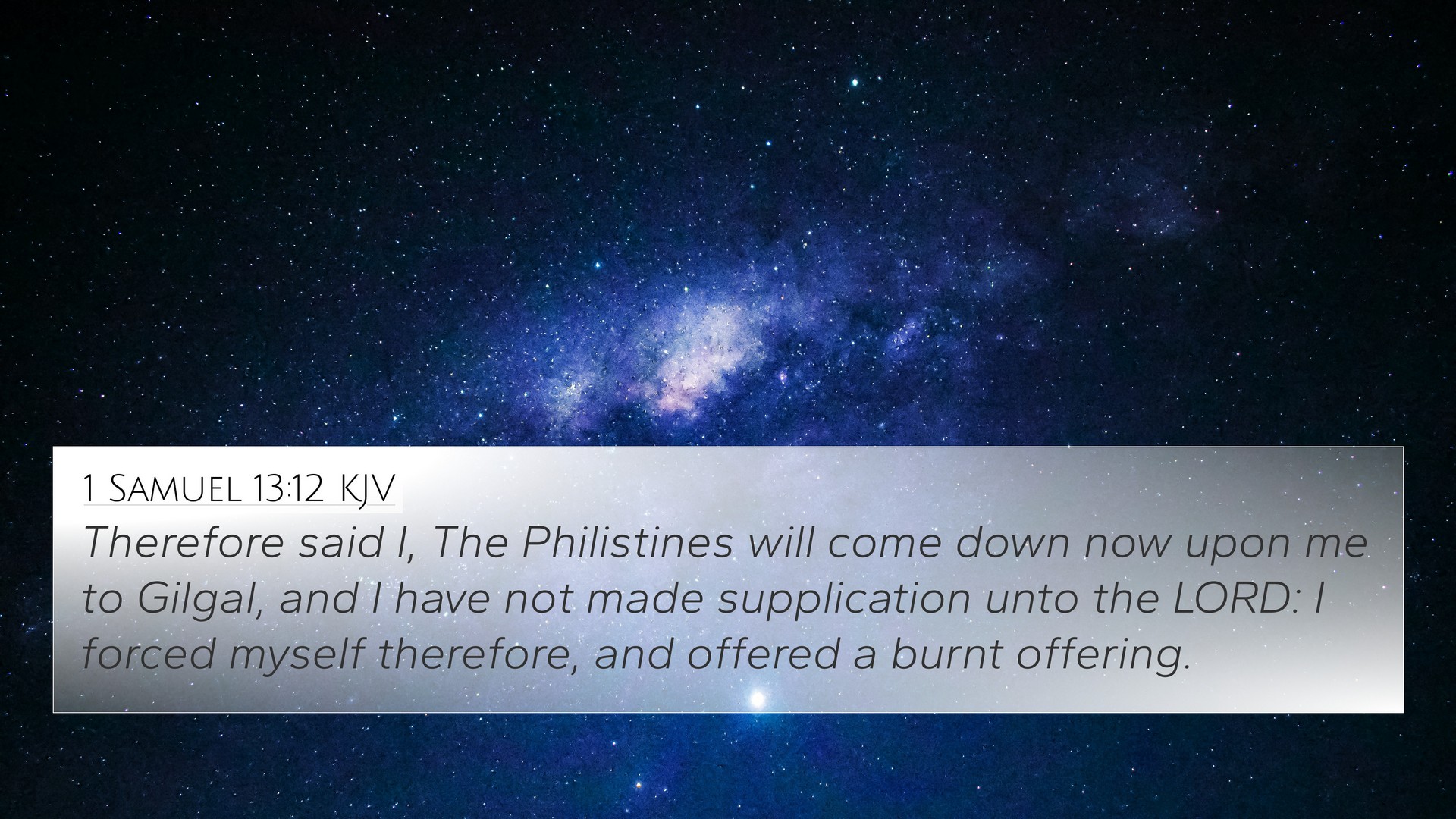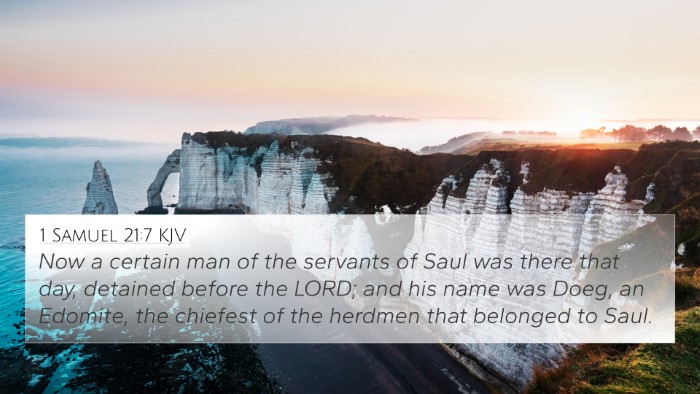Understanding 1 Samuel 13:12
Verse Context: 1 Samuel 13:12 states, "Therefore said I, The Philistines will come down now upon me to Gilgal; and I have not made supplication unto the LORD: I forced myself therefore, and offered a burnt offering."
This verse captures a critical moment in Saul's kingship, highlighting his inner turmoil and the consequences of his actions in the face of external pressures.
Summarized Meaning
The interpretation of 1 Samuel 13:12 reveals crucial insights about obedience, leadership, and the relationship between faith and action. Saul's rushed decision to offer sacrifices without waiting for the prophet Samuel illustrates the dangers of impatience and self-reliance.
Commentary Insights
- Matthew Henry: Henry emphasizes the importance of divine timing and the consequences of acting outside of God’s ordained order. Saul, feeling the pressure from the enemy, acted hastily, showing a lack of trust in God’s timing and authority.
- Albert Barnes: Barnes notes that Saul's actions represented a deviation from the law and tradition, as ceremonial offerings were to be made only by the designated priest. This act reflects a significant lapse in Saul's faith and an attempt to secure God's favor through improper means.
- Adam Clarke: Clarke points out that Saul’s acknowledgment of forcing himself to offer the sacrifice alludes to his struggle between faith and fear. The urgency of the situation led him to act out of desperation rather than faith, which ultimately led to his rejection as king.
Thematic Connections
1 Samuel 13:12 serves as a powerful illustration of major biblical themes such as:
- Impatience in Leadership: The need for patience in waiting for divine guidance.
- Fear and Faith: The conflict between human fear and the call to trust in God.
- Divine Authority: The importance of adhering to God’s established order in worship and obedience.
Cross-References
This verse can be cross-referenced with several biblical passages that illustrate similar themes and principles:
- 1 Samuel 10:8: Saul's instructions to wait for Samuel before offering sacrifices.
- 1 Chronicles 10:13-14: The account of Saul’s disobedience leading to his downfall.
- Proverbs 3:5-6: The call to trust in the Lord with all one's heart and not to lean on one’s own understanding.
- Galatians 1:10: Paul discusses the importance of pleasing God over men, relevant to Saul’s misguided intent.
- Hebrews 11:6: The faith that pleases God stands in stark contrast to Saul's act driven by fear.
- Exodus 20:12: Honoring God’s commandments and the importance of rightful worship.
- Matthew 6:33: The call to seek first the kingdom of God before taking matters into one’s own hands.
Practical Applications
From this verse, believers can derive practical lessons on:
- Waiting for God's timing in our decisions, particularly in leadership roles.
- Recognizing the danger of acting out of fear rather than faith.
- Valuing God's established order and instruction in worship and sacrifice.
Conclusion
1 Samuel 13:12 is a poignant reminder of the necessity of trust, patience, and obedience in walking with God. It warns against the pitfalls of hasty decisions made in times of stress and emphasizes the importance of remaining steadfast in faith
.
Ultimately, understanding this verse in conjunction with its cross-references offers a deeper insight into the nature of God’s expectations from His leaders and followers.







